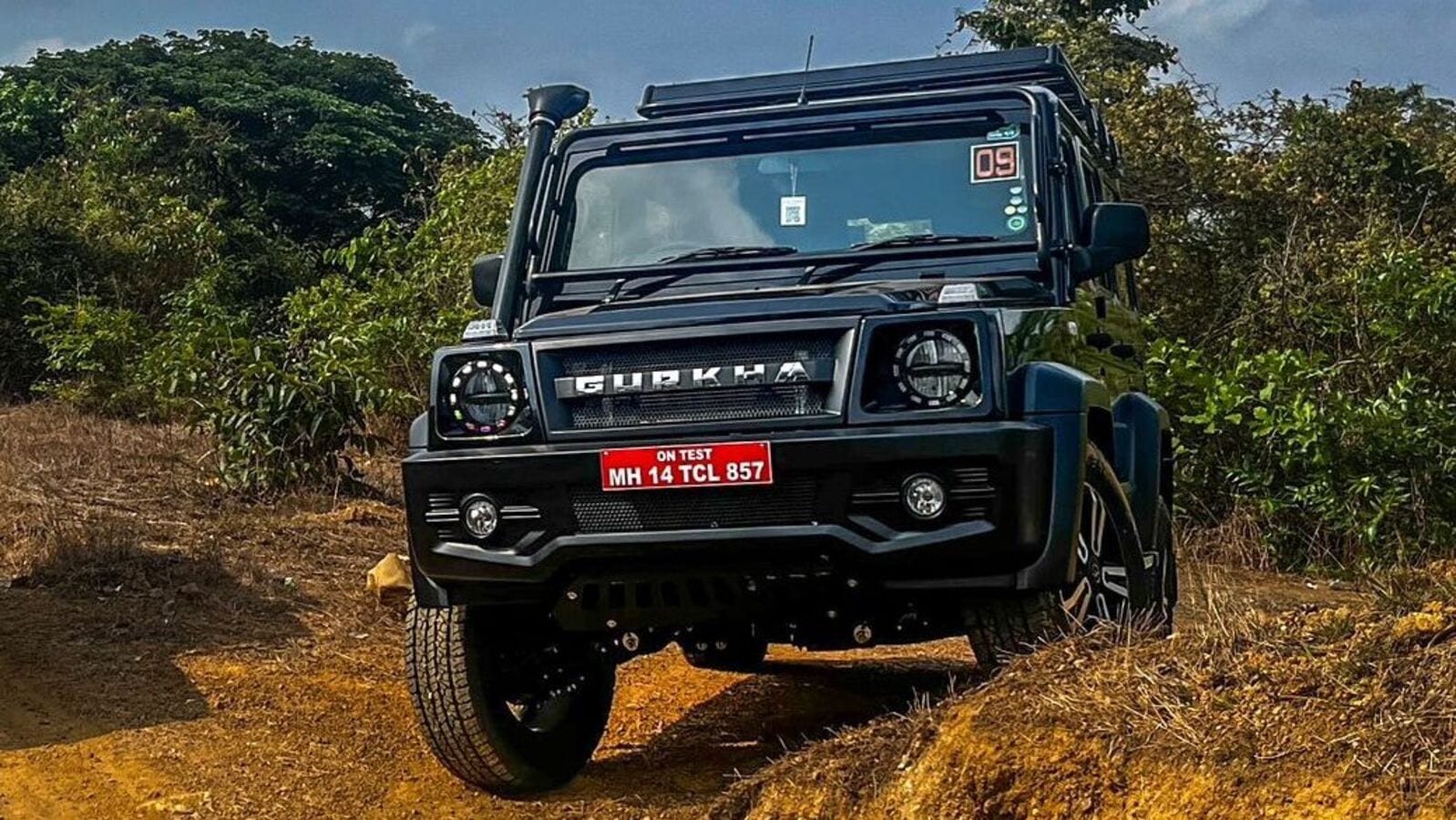Rivian and VW have recently opened a partnership, despite the brands have very similar upcoming electric adventure vehicles with the Rivian R2 and VW Scout. But at a roundtable discussion with Rivian’s CEO RJ Scaringe, he said there’s more than enough room for the brands to coexist with each other.
Recent news about Rivian and VW’s software partnership, with VW investing over $5 billion into Rivian and forming a joint venture to adopt Rivian’s zonal architecture for the underpinnings of VW’s vehicle communications, has led to some interesting questions about how the details of the partnership would work out.
At the top of many people’s minds has been: isn’t it a little weird that the Rivian-like Scout brand will now essentially be competing with itself for the adventure EV market?
The question has been answered before – or perhaps more specifically non-answered – in press conferences around the official opening of the joint venture last week.
Generally, comments ran along the line of Rivian working to bring its software expertise to bear across VW’s brands, though the two companies have been a little shy to confirm whether Scout specifically would use Rivian’s software. After all, Scout is a bit of a spinoff from VW, and seems interested in showing some independence on that front, so it could be possible that they work on their own.
But in comments at a roundtable which Electrek attended today ahead of the LA Auto Show, it certainly seemed that Rivian will be working on Scout vehicles. Scaringe said that “we’re going to be supporting their full portfolio of brands – Porsche, Audi, Volkswagen, Scout.”
However, more importantly, Scaringe said that he’s “amused” by the focus that many have had on Scout, or those who consider it a potential threat to Rivian.
Scaringe estimates that there are “less than five” compelling EVs available for under $50k in the market today – and that’s perhaps being charitable. Meanwhile, if you go over to the gas world, there are gobs of choices out there for consumers, and yet they all manage to coexist without issue.
So Rivian has worked hard to distinguish itself from Tesla, for example, and thinks that even if Scout is inspired by Rivian, there’s still room for similar vehicles to coexist.
After all, there are many competing vehicles in many categories – some of which do indeed share underpinnings from separate companies. Just in the EV space, the Kia EV6 and Hyundai Ioniq 5 share a platform, and the Subaru Solterra and Toyota bZ4X are basically identical vehicles. So there has been plenty of history of companies working together to come out with similar or near-identical (rebadged) cars.
That’s not the case here, as Scout and Rivian will be very different in terms of platform and manufacturing. But sharing software shouldn’t be much of an issue – and even if we assume that Scout could cannibalize a segment of the market that Rivian otherwise had a good hold on, Rivian can still benefit from the partnership regardlessl.
Rivian’s main focus in recent years has been getting costs down. The story is that Rivian began scaling production in an extremely difficult time – trying to organize supply contracts at the historical peak of the auto industry (~2018), trying to start a manufacturing program during a global pandemic (2020/2021), and having little clout available to get on the better side of those contracts.
Now, Scaringe said, the situation is better: not only can Rivian show that it has a dominant position in its class – selling more premium SUVs than other EV and even gas brands – but it can also tout that it has support from one of the most established auto manufacturers in the world, Volkswagen. If VW – the second-largest automaker in the world – has enough faith in Rivian to invest $5.8 billion, then surely a supplier can trust that Rivian will stick around long enough to buy more than one set of parts.
Not only that, but the companies could potentially leverage their combined size for larger supply contracts. Say a certain microcontroller is needed for vehicle architecture across Rivian and also VW’s brands, then perhaps the joint venture could recognize much larger economies of scale.
The question also came up over whether Rivian might try to see if VW’s global sales network could help them to sell Rivians, but Scaringe shut that down, saying there is “no interest” in doing so. Rivian would rather stick to its plans of setting up its own stores and doing direct sales.
Charge your electric vehicle at home using rooftop solar panels. Find a reliable and competitively priced solar installer near you on EnergySage, for free. They have pre-vetted installers competing for your business, ensuring high-quality solutions and 20-30% savings. It’s free, with no sales calls until you choose an installer. Compare personalized solar quotes online and receive guidance from unbiased Energy Advisers. Get started here. – ad*
FTC: We use income earning auto affiliate links. More.





